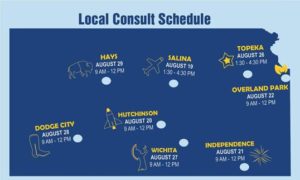Governor Kelly Applauds KDADS Expansion of HCBS Brain Injury Waiver;
Services to now include individuals age 16 years and older with traumatic or acquired brain injury
TOPEKA – The Kansas Department for Aging and Disability Services (KDADS) is pleased to announce the federal Centers for Medicare and Medicaid Services (CMS) recently approved its Brain Injury Waiver to include both acquired and traumatic brain injuries for individuals ages 16 years and older.
“Secretary Howard and her team at KDADS have accomplished what is a true collaboration between her agency and interested stakeholders and community partners,” Governor Laura Kelly said. “I believe expanding inclusion for this wavier will positively impact many Kansans and I’m grateful for the time and effort so many people put into making it happen.”
In accordance with a legislative proviso, the expanded waiver makes eligible for services under the traumatic brain injury home and community-based services (HCBS) waiver under the Kansas medical assistance program (KanCare):
- Individuals with a documented brain injury acquired from a cause not already covered under the traumatic brain injury waiver, including, but not limited to, stroke, brain trauma, infection of the brain, brain tumor, anorexia or other cause; and
- Individuals of any age who would otherwise qualify for services under the traumatic brain injury waiver but for the individual’s age.
“Working with the legislature and collaborating with partners is part of my team’s commitment to continue the long-standing leadership in home and community-based services people expect from KDADS,” Secretary Howard said. “We will continue to look at and talk about innovative ways to approach waiver renewals from a people-first perspective.”
KDADS plans to submit an amendment to CMS later this year to include children younger than age 16 years. Kansas is the first state to propose including children in its brain injury waiver.

